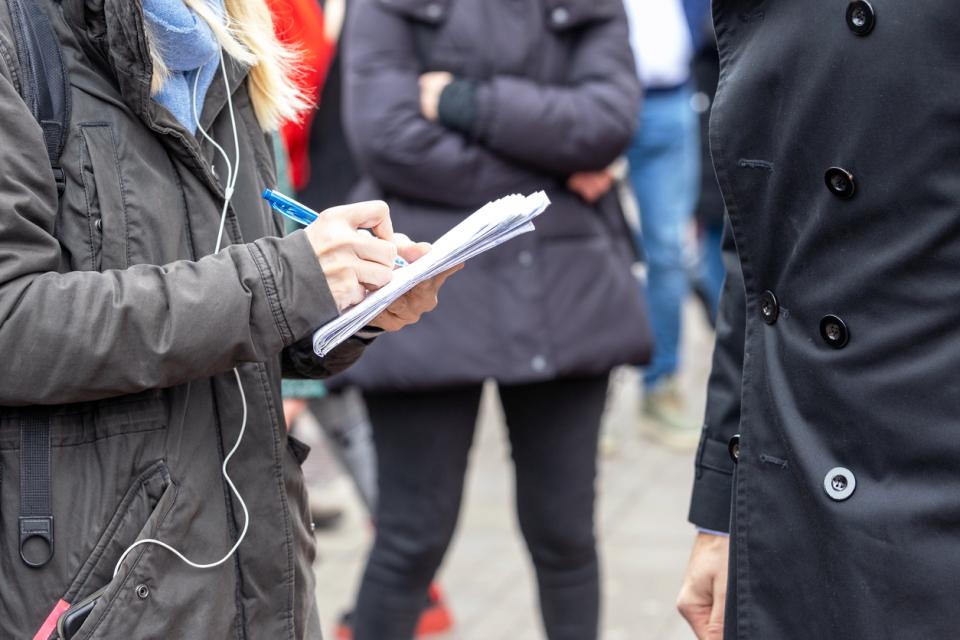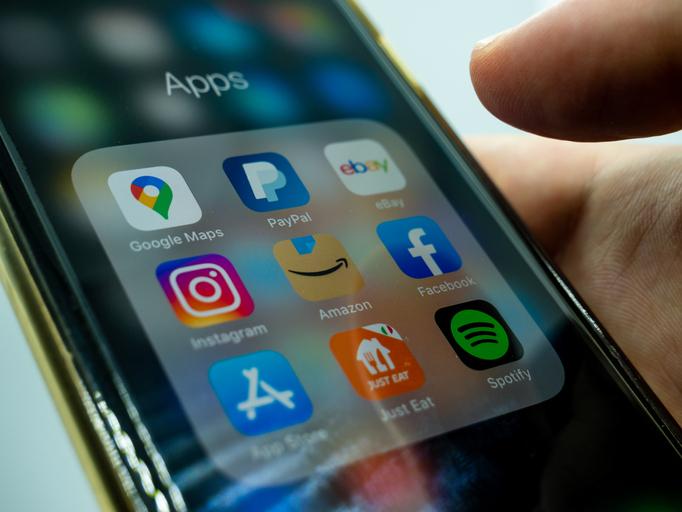In a world where ChatGPT can do “research” in an instant, the value of original material that can be generated only by humans is likely to grow.
To this end, professional interview techniques as practised by journalists is a skill that can be embedded in the curriculum in a wide range of subjects where, as well as generating new knowledge, it can be used to develop your students’ critical-thinking skills.
But it’s not straightforward. Students often think interviewing means “having a conversation”, but if that chat is unstructured, the student risks coming away with little more than two hours-plus of recorded material, which takes more hours to transcribe (even with a real-time transcription programme such as otter.ai) and much of which might be unusable.
Here are some tips to help students learn how to interview effectively and produce a good result:
How to introduce your students to interviewing skills
Post-Covid and amid the difficulties of adjusting to socialising in real life, some students might find the idea of interviewing people they don’t know overwhelming.
An easy exercise in class to address their nervousness is to start by getting them to interview each other in pairs, taking 20 minutes, and giving the interview a focus such as their course or module.
They can record the interviews on their phones – most will probably have an in-built recording app – and write them up as Q&As. They can then share with the class and discuss what they have discovered about each other and found most interesting or challenging about the process. They could even use a critical-thinking framework such as Paul-Elder to evaluate the output.
A useful follow-up exercise – especially if they are still wary – is to get them to find someone who has an unusual job. It can be a family member or friend, but steer them away from fellow students to encourage them to step out of their comfort zones.
- Resource collection: teaching critical thinking
- Squid pro quo: using Squid Game to engage economics students
- A bridge between academics and communications staff
Skills for preparing to do an interview
Do your research
A simple Google search might reveal topics for discussion with your subject, while their interests, background and career path can be found on LinkedIn. Twitter/X remains, for the moment, another useful source for academic or journalism sources, while Facebook is particularly useful for finding community, subject-specific or campaigning groups. Be sure to underline for your students that information found on social media needs to be fact-checked.
List your questions
Help students decide what they are looking for. Is it:
- facts and insights from someone’s research or experience?
- their opinion on why something happened or what should be done to solve a problem?
- confirmation that something you have been told or have found in research is correct?
Students shouldn’t waste time asking questions for which the answers can easily be found – and, importantly, verified – online. Questions should also be presented in a way that avoids yes/no answers.
Students often ask how many questions they should prepare because they tend to think in terms of process and transaction. Clearly, the answer is dependent on the intended output, but a good rule of thumb is a minimum of five and a maximum of 10.
What to do when conducting an interview
Duration
The length of time given to the interview should be shaped by what the intended output is – and how long the interviewee can spare comfortably. Frame the questions correctly and it could be wrapped up in five minutes. Generally, for students doing it for the first time, 30 minutes is a good upper limit to set and no more than 45.
Encourage students to chat informally to people beforehand. It helps them – and the interviewer – to relax.
Listening skills
Having prepared their long list of questions, students tend to tick them off as they go and fail to listen to the answers or let the conversation flow. Interviewing is not an industrial process; it’s a creative one. Students need to listen to the answers to their questions in case the person says something unexpectedly interesting that is worth following up on the spot.
Spot the interesting anecdote
A good interview becomes a great one when something that only the interviewee could share or which illuminates the topic is unearthed. In journalism, this generates a headline; the format might be different for academic purposes, but you are still trying to engage your reader. Students should always ask for examples of points the interviewee makes for a personal, insightful piece of work.
Online, on the phone or in person – but not by email
Generation Zs and Millennials who have grown up as digital natives routinely opt for messaging via social media (or email sometimes) not only to contact sources but also to interview them. The trouble with the e-interview is that it puts the interviewee in control and precludes the spontaneous follow-up question or request for clarification.
People unaccustomed to writing for an audience also tend to write in the passive voice and adopt a formal tone in their electronic replies. It’s far better to interview someone in person, as the result will be much richer if both parties are actively participating.
If the interview is done in person, the meeting should be in a public place and the student should take someone with them, for safety reasons on all sides.
Managing the process after the interview
In journalism, the interviewee will often ask if they can see the final copy before it is published. This will probably happen if you or your students intend to publish the piece on a public platform. Sometimes, it’s useful to let interviewees see a transcript of their quotes; this might apply in academic work, too, especially if the subject matter is complex. Students should be aware, however, that they are likely to want to change some of their answers because they will start to worry about how they are coming across in the text.
Introducing students to the concept of live interviews, including being interviewed themselves, can have benefits beyond the course, helping with confidence, socialisation and employability. If they can feel comfortable doing so, it will also offer them a USP in a world that, even before ChatGPT landed, was becoming increasingly virtual and transactional.
Julie Nightingale is a journalist and course leader of the MA Magazine Journalism at Nottingham Trent University.
If you would like advice and insight from academics and university staff delivered direct to your inbox each week, sign up for the Campus newsletter.




comment